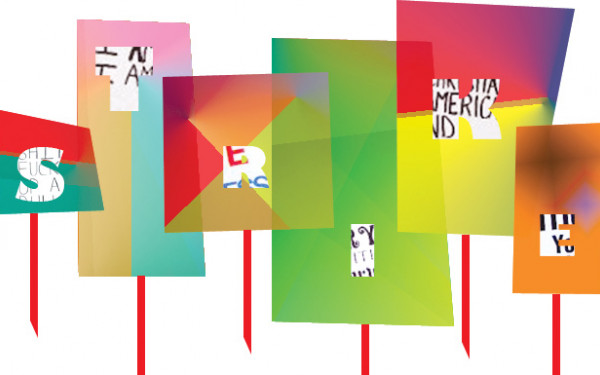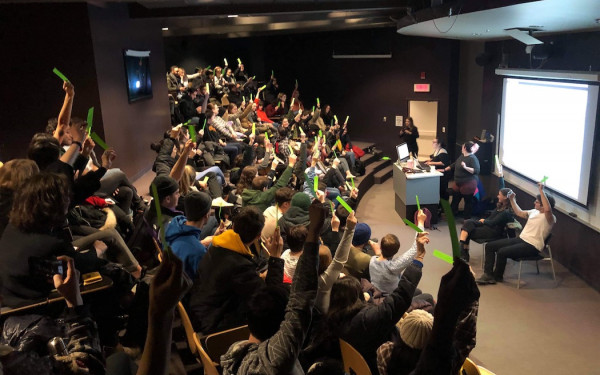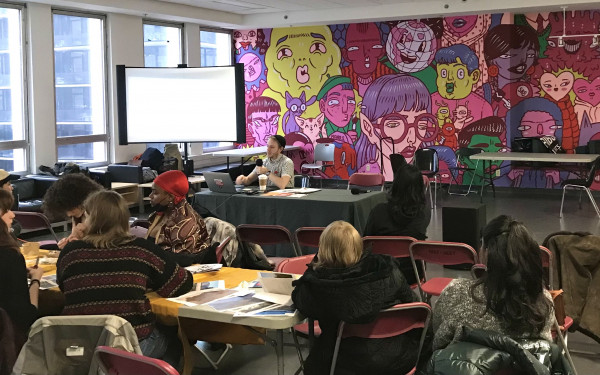Sociology and Anthropology Graduate Students Vote In Favour Of One-Day Strike
The Sociology and Anthropology Graduate Student Association (SAGSA) voted in favour of striking against austerity at their general assembly on Monday. The strike will be held Thursday, Nov. 5.
“It’s extremely important that students at Concordia recognize that there is a common struggle going on,” said Kyle McLoughlin, co-chair of SAGSA.
The vote passed unanimously with 17 in favour. There were no abstentions. Quorum for SAGSA strike votes is set at 16 people, which is 20 per cent of the department.
The unanimous vote came as no surprise to McLoughlin, who sees graduate students as being particularly affected by government cuts to education.
“We’re seeing less [teaching assistant] shifts being offered, less funds in financial aid, and a lot of students who are doing their masters are interested in pursuing academia as a career, and that is just evaporating before our very eyes,” he explained.
The strike will be held on the same day as a protest against austerity measures, organized by the Association pour une Solidarité Syndicale Étudiante (ASSÉ).
The department has no classes that day, so the strike vote is largely symbolic. Those in attendance at the general assembly showed little interest in holding an extended strike.
“We were interested in expressing our support and solidarity for the day of the national manifestation,” he said.
The motion also included the possibility of a future strike vote, which will be held in the event that the 26 students currently undergoing tribunals are formally charged, or more charges are brought against strikers in the future.
McLoughlin called the tribunals an “absurd form of political theatre.”
The university should be joining in with student associations to form a “united front” against the cuts, and charging strikers for breaking the code is “counter-productive” and “divisive,” according to McLoughlin.
If students are charged, SAGSA would be prepared to go on a hard-picket strike for a longer period of time, he said.
“We need to see this not as a local or regional issue, but as an ideological struggle,” he said.

_900_600_90.jpg)
_600_832_s.png)

_600_375_90_s_c1.JPG)


